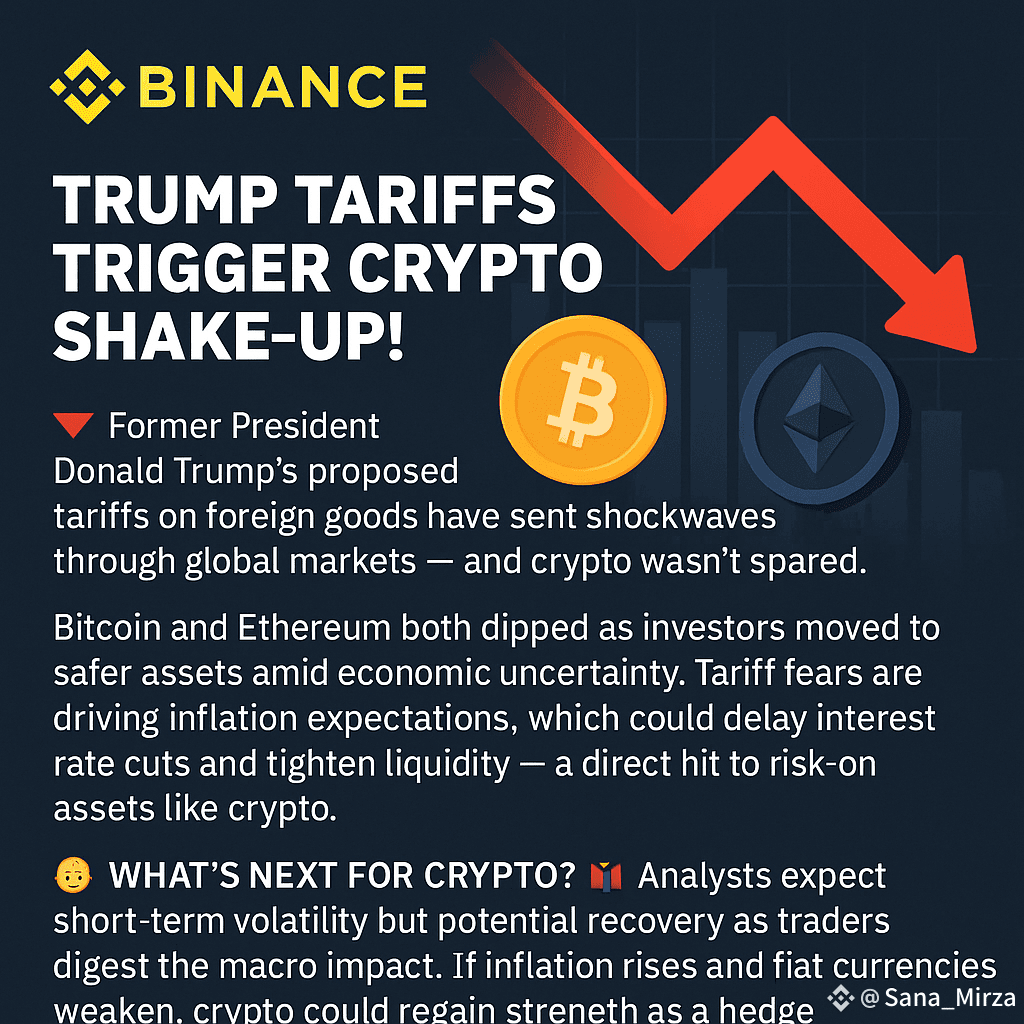The global financial landscape was jolted recently as former U.S. President Donald Trump proposed sweeping tariffs on foreign goods — a move that has already begun to ripple through markets, including the cryptocurrency sector.
📉 A New Wave of Uncertainty
Trump's tariff plans, which would increase taxes on imported goods if he returns to office, have reignited fears of global trade wars. These policies could lead to higher consumer prices, slower international trade, and rising inflationary pressure — all of which can spook investors and tighten economic conditions.
In response, traditional stock markets saw immediate dips — but the crypto market also suffered. Major digital assets like Bitcoin (BTC) and Ethereum (ETH) fell as traders sought refuge in stable assets such as the U.S. dollar or gold.
🧠 Why Is Crypto Reacting?
Cryptocurrencies are often seen as "risk-on" assets, meaning they tend to rise in environments with low inflation, loose monetary policy, and investor confidence. The threat of tariffs can reverse those conditions:
Inflation expectations rise ⟶ causing central banks to hesitate on interest rate cuts.
Liquidity dries up ⟶ making it harder for speculative markets like crypto to gain traction.
Geopolitical tension increases ⟶ triggering caution in investment decisions.
🔍 The Bigger Picture
While the immediate reaction has been negative, there are long-term bullish arguments for crypto. If tariffs weaken fiat currencies like the USD and EUR over time, investors may look to Bitcoin as a hedge. This scenario mirrors the behavior of BTC during past monetary crises, when decentralization and limited supply attracted capital.
Moreover, institutional investors could see this as a buy-the-dip opportunity, especially if rate cuts are only delayed, not canceled entirely.
📊 What’s Next for the Market?
Analysts are closely watching:
U.S. inflation data
Federal Reserve interest rate decisions
Any developments in trade policy leading into the 2024 U.S. elections
For now, expect increased short-term volatility, especially around economic data releases and political announcements. However, a crypto rebound is not off the table — particularly if broader markets stabilize or if global demand for decentralized assets rises.
---
Conclusion: Trump’s tariff talk has added fresh pressure to an already cautious crypto market. While the short-term outlook remains uncertain, the long-term fundamentals of decentralized finance and digital assets could ultimately shine brighter — especially in a world struggling with inflation and trade restrictions.
#TrumpTariffs #MarketPullback #WhiteHouseDigitalAssetReport #EthereumTurns10



